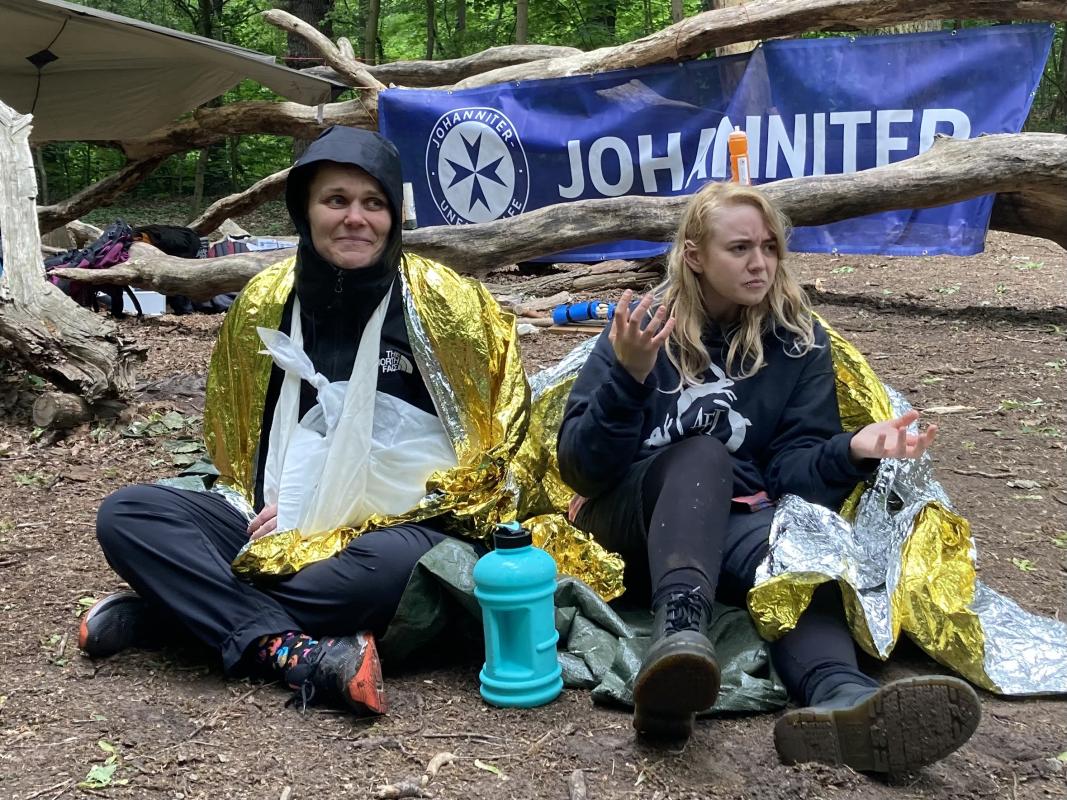Whether in the jungle, in the desert or in the Arctic tundra - researchers are often travelling in remote, inaccessible areas to make their discoveries. When an emergency occurs, they are usually completely on their own, far away from civilisation and medical help. What do you do in the event of a scorpion sting or a broken bone in the wilderness? Researchers from the Museum für Naturkunde Berlin are currently training for such or similar scenarios in a special outdoor first aid course.
The three-day intensive training programme prepares participants specifically for emergencies in inhospitable environments where medical help is difficult or delayed to reach. They learn life-saving skills in realistic outdoor scenarios: from advanced wound care, rescue and transport techniques to methods for keeping a clear head in chaotic situations.
Of course, all participants hope that they never have to use what they have learnt. “But there is always a risk of injury, especially when excavating. Fortunately, apart from minor injuries, nothing serious has ever happened so far, but it could have been very different in some cases,” reports course participant and palaeontologist Aurore Canoville, who is researching the evolution and adaptation of vertebrates at the Museum für Naturkunde, particularly with regard to the development and tissue of fossil bone structures.
“In three days, we don't turn the participants into paramedics, but we do give them the confidence they need to function in exceptional situations and take immediate life-saving measures,” says course director Christian Gatniejewski from Johanniter-Unfall-Hilfe in Dessau. “In many regions of the world, rapid assistance is not a matter of course - our training provides precisely the expertise that is vital for survival in such moments,” adds the rescue specialist, who has been preparing researchers from a wide range of research institutions for extreme situations for years.
The ‘Wilderness and Expedition Medicine’ instructor team consists of experienced emergency paramedics and doctors with many years of experience in humanitarian, emergency and disaster relief in foreign missions. These specially trained lecturers combine medical expertise and intensive experience in wilderness, emergency and crisis medicine. Their seminars are primarily aimed at research institutions such as the Museum für Naturkunde Berlin and are booked internationally.
Being prepared for emergencies gives participants the security and confidence to courageously pursue their research - even in the remotest corners of the world.
